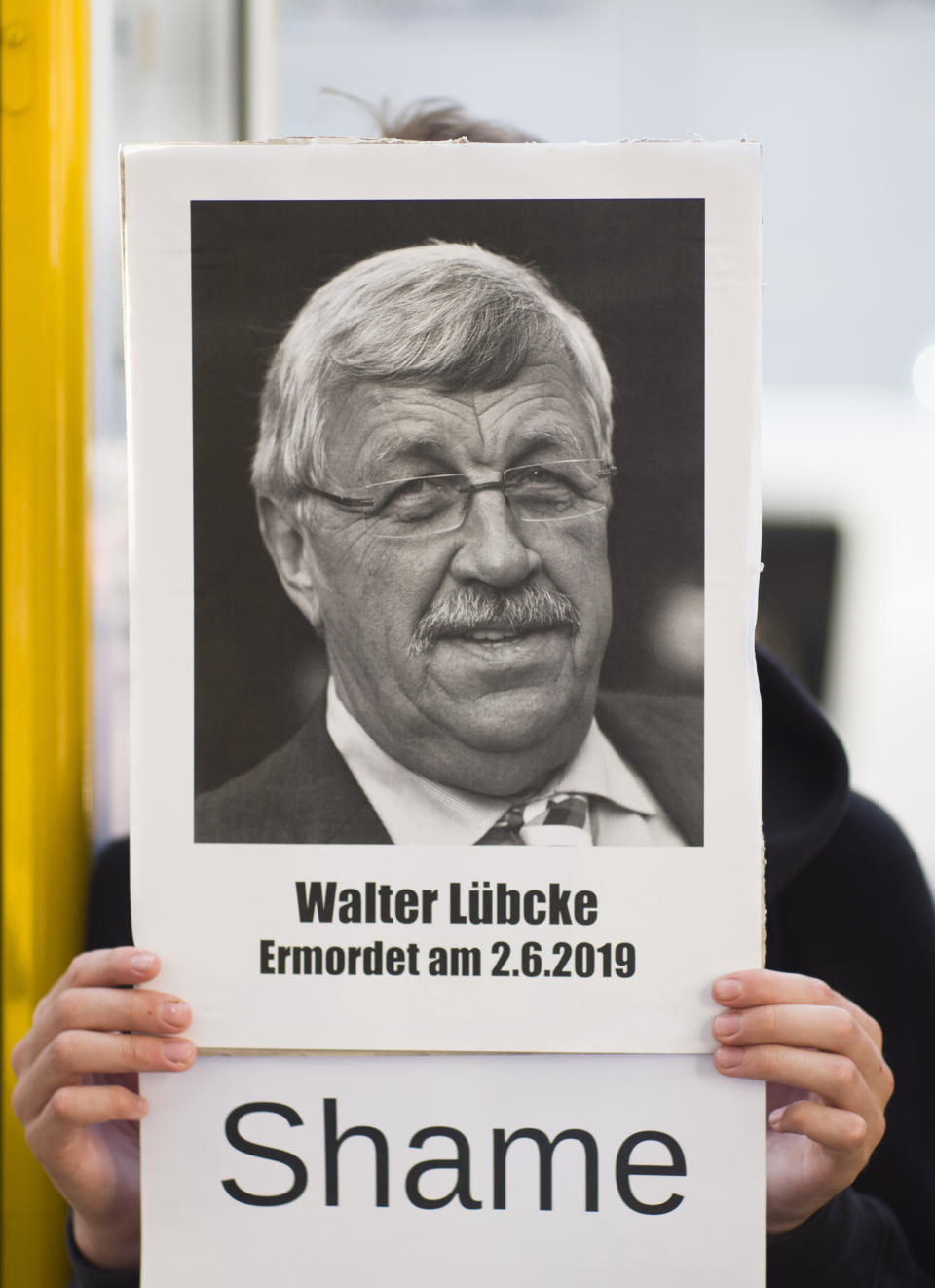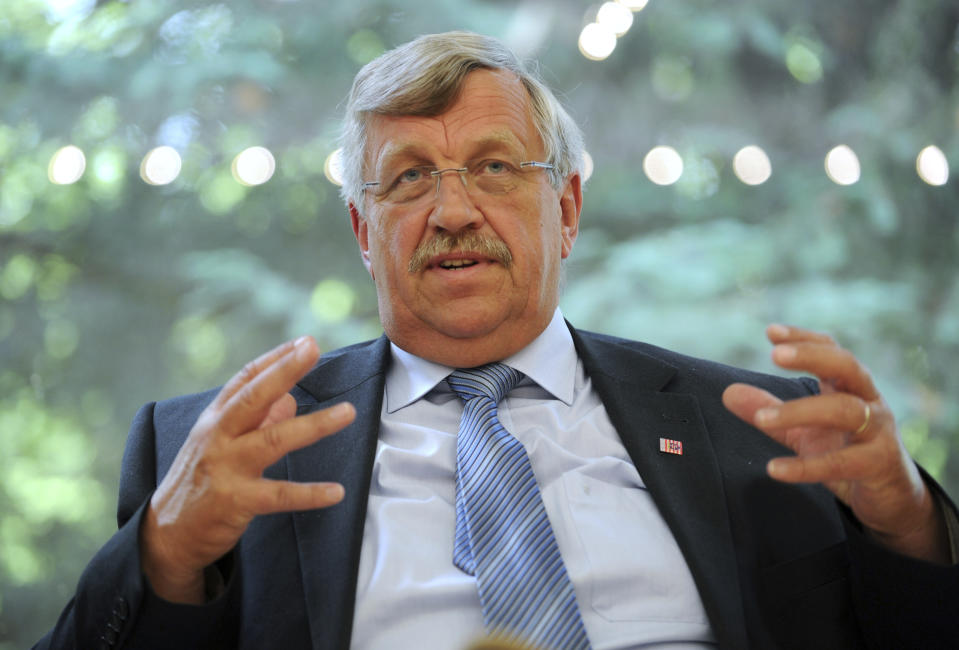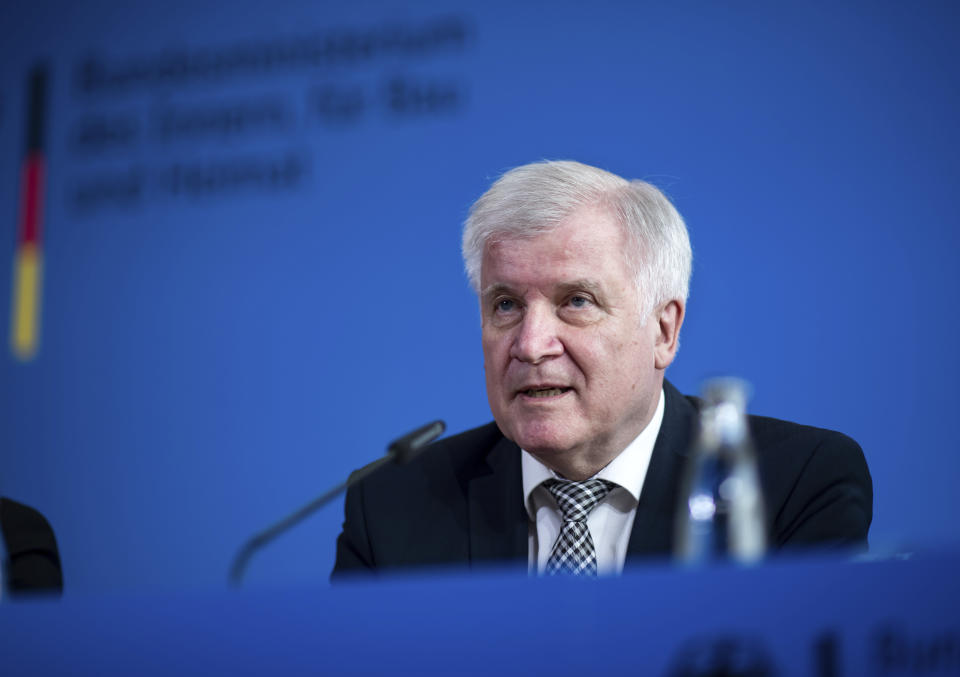Germany: Suspect in politician's slaying says he acted alone
BERLIN (AP) — The far-right extremist suspected in the killing of a politician from German Chancellor Angela Merkel's party has told authorities that he acted alone, but investigators are still probing whether anyone else was involved, Germany's top prosecutor said Wednesday.
Walter Luebcke, who led the Kassel regional administration in central Germany, was fatally shot in the head at his home on June 2. A 45-year-old German man with a string of convictions for violent anti-migrant crime, Stephan Ernst, was later arrested as the alleged killer.
The suspect "made a confession" Tuesday, chief federal prosecutor Peter Frank told reporters after appearing before parliament's home affairs committee. "He said that he prepared and carried out alone the crime, the killing of Mr. Luebcke."
But Frank said investigators would not take the suspect's statement as the last word on the case.
"Despite the accused's statement that he acted alone, a matter for our investigations will be whether there might have been supporters, helpers, accessories or other perpetrators, and our investigations will also continue to address whether this crime, this killing, was the work of a terrorist organization, or whether the accused is a member of a right-wing terrorist organization," Frank added.
Interior Minister Horst Seehofer, Germany's top security official, underlined the point.
"The effort to clear up this political killing is not concluded with this (confession)," he said.
Luebcke was known for supporting the welcoming refugee policy that Merkel adopted during an immigration influx in 2015, when hundreds of thousands of people fleeing war and persecution sought shelter in Germany.
The suspect was known to police as a far-right extremist with convictions for violent crimes dating from the late 1980s to 2009, German media have reported. They include a 1993 pipe bomb attack on a refugee shelter in Hesse state, where Kassel is located. However, the head of Germany's domestic intelligence service has said that he hadn't been on the agency's radar for the past decade.
The slaying has evoked memories of the National Socialist Underground, a neo-Nazi group that killed 10 people in Germany — mostly immigrants — between 2000 and 2007. Authorities only connected the killings to far-right activity in 2011, when two of the group's three core members died after a botched bank robbery.
Last week, police said they were investigating a series of threats sent to officials and institutions days after Ernst's arrest. It was unclear whether they were linked to Luebcke's killing.




